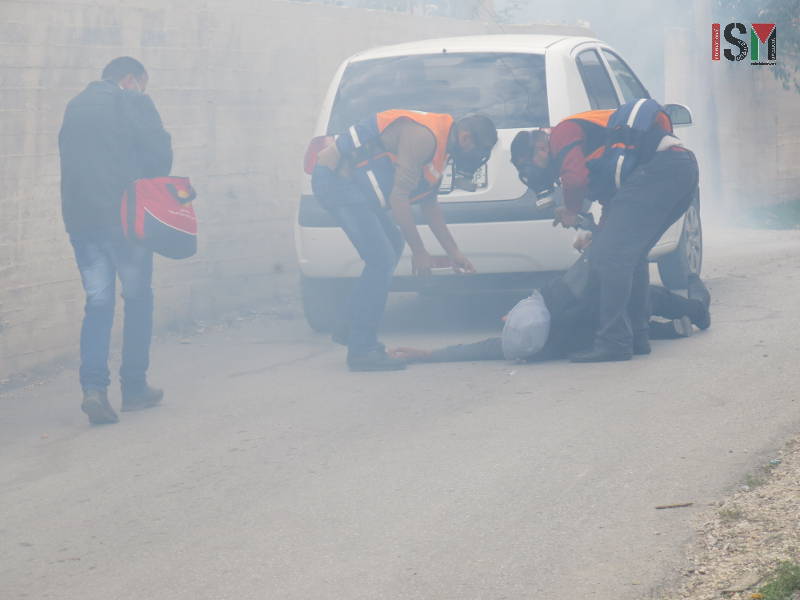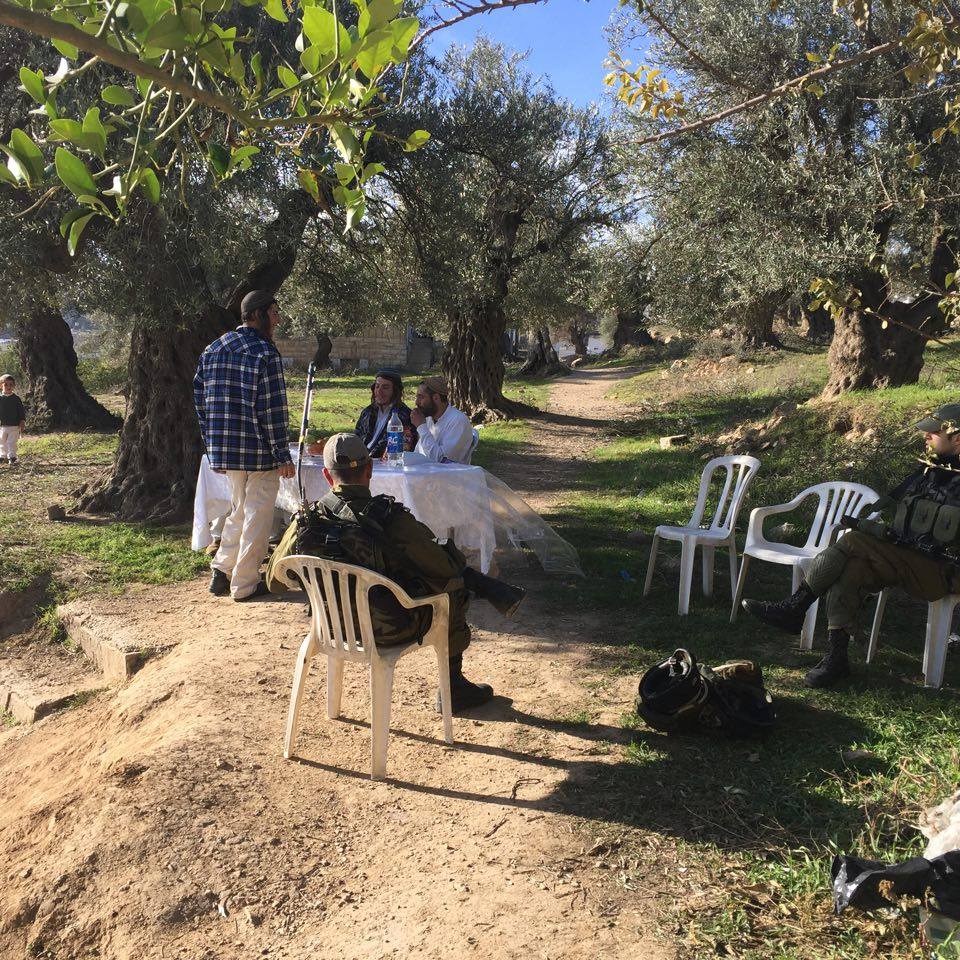-
Illegal Israeli settlers threaten to burn a family of 11
28th November 2015 | International Solidarity Movement, Nablus team | Madama, occupied Palestine Earlier today, November 28th, a group of Israeli illegal settlers, in the presence of three Israeli soldiers, threatened to burn down a family in the village of Madama, occupied West Bank. At noon, 25 settlers from the nearby settlement of Yitzhar trespassed […]
-
Demonstration at Huwwara checkpoint demanding the return of martyr’s body violently met by Israeli forces
28th November 2015 | International Solidarity Movement, Nablus team | Huwwara, occupied Palestine Protesters from Nablus and the surrounding villages gathered in a demonstration on Saturday, November 28th, demanding the return of a young martyr’s body. Alaa Khalil Hashash, aged 16, was killed by Israeli forces after allegedly attempting to stab an Israeli soldier at […]
-
Arbitrary arrest of local activists as settlers lay siege to soumud house in Hebron
28th November 2015 | International Solidarity Movement, al-Khalil team | Hebron, occupied Palestine Yesterday night, Israeli forces arrested two activists from the local activist group Youth Against Settlement in occupied al-Khalil (Hebron). Illegal settlers, under the protection of the Israeli forces, then layed siege to the YAS center, the Soumud house, trapping everyone inside. Israeli […]
Action Alert An Nabi Saleh Apartheid Wall Arrests BDS Bethlehem Bil'in Cast Lead Demonstration Denial of Entry Ethnic Cleansing Farmers Gaza Global Actions Hebron House Demolition International law Israeli Army Jerusalem Live Ammunition Nablus Ni'lin Prisoner Ramallah Rubber-coated steel bullets Settlement Settlers Settler violence Tear-Gas Canister Video



